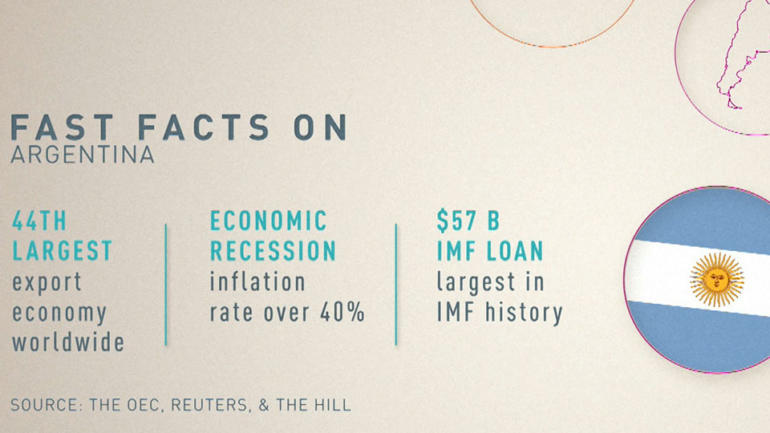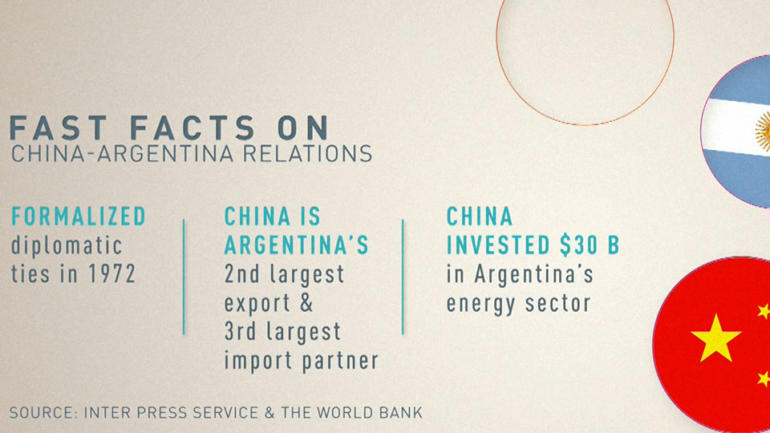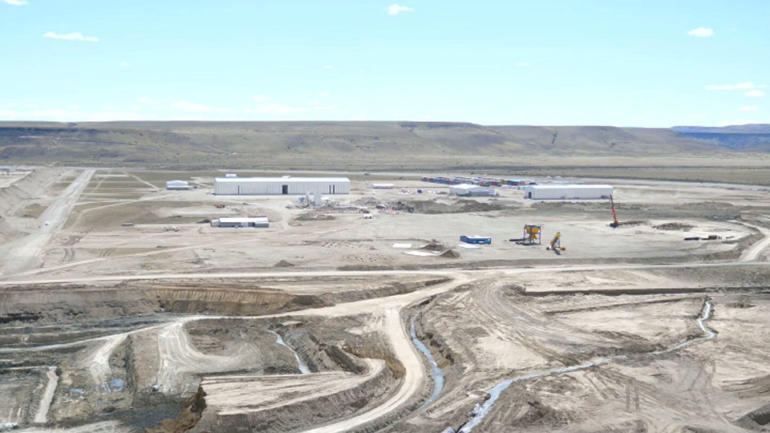China and Argentina are hoping to expand their relationship at the G20 summit. Argentine President Mauricio Macri is scheduled to meet President Xi Jinping. They are expected to agree on a five-year plan and a series of trade and investment pacts.
The relationship between the two countries has a lot riding on a joint Chinese-Argentine effort: the construction of a pair of hydroelectric dams in the Patagonia region.
CGTN’s Joel Richards filed this report from Santa Cruz.
In southern Patagonia, work is underway on the two dams, with China providing much of the nearly $5 billion in costs. Construction manager Yang Zhenggui said the completed dams will increase Argentina’s electricity production by 7 percent.
Work started on the dams in 2015, during the Cristina Fernandez de Kirchner government. However, it stalled under the current administration.
“There have been a number of difficulties. One was the environmental study,” Yang said. “This project is in Patagonia in the Glacier National Park, a World Heritage site. The Macri government asked for another project evaluation which stopped progress for some time, but that was approved, and now we’re back working normally.”
The number of turbines for the two dams has been reduced in response to the environmental study. Despite concerns over the environmental impact, work on these dams is moving ahead. This is the largest infrastructure project in Argentina, and will take a number of years to complete.
The dams are viewed as an important pillar in the relationship between China and Argentina. Infrastructure is just one of the areas in which China is playing an ever greater role in this country’s economy.
Buenos Aires recently expanded its currency swap with Beijing, and China has opened up its market to Argentine agricultural produce. The first-ever shipment of blueberries from Argentina to China left just last week.
Presidents Macri and Xi are expected to sign 30 agreements and a five-year plan during their meeting on the sidelines of the G20 summit. Argentina has a trade deficit with China, but observers have said things may change.
“There is a political consensus about the relationship with China,” Sociologist Nicolas Damin said. “We are working now on what we could call the micro-economy of each sector, from mining to blueberries, and how Argentina can benefit from sectors in the Chinese economy. That is what is new.”
Argentina has endured a rocky economy so far this year. Boosting exports and attracting more investments will help, and China appears positioned to step up its presence.
Understanding the Argentine Economy
The G20 summit puts the host country in the spotlight on the global stage. That can be a big opportunity for Argentina’s struggling economy.
Argentina is the 44th largest export economy in the world, but that hasn’t shielded it from a severe recession.

Argentina’s inflation rate hovers at over 40%, and the peso fell by about 3.0% just days before the summit. Despite landing a $57 billion loan from the International Monetary Fund (IMF) in September, Argentina is hoping to continue global dialogue on revitalizing its market.
Argentina’s Economic Relationship with China
A major player in that dialogue is China. Argentina and China established diplomatic relations in 1972. Since then, the two countries have cemented strong trade ties.

China serves as one of Argentina’s largest export partners, and a major investor in its economy. It’s invested some $30 billion in Argentina’s energy sector alone.
 CGTN America
CGTN America

